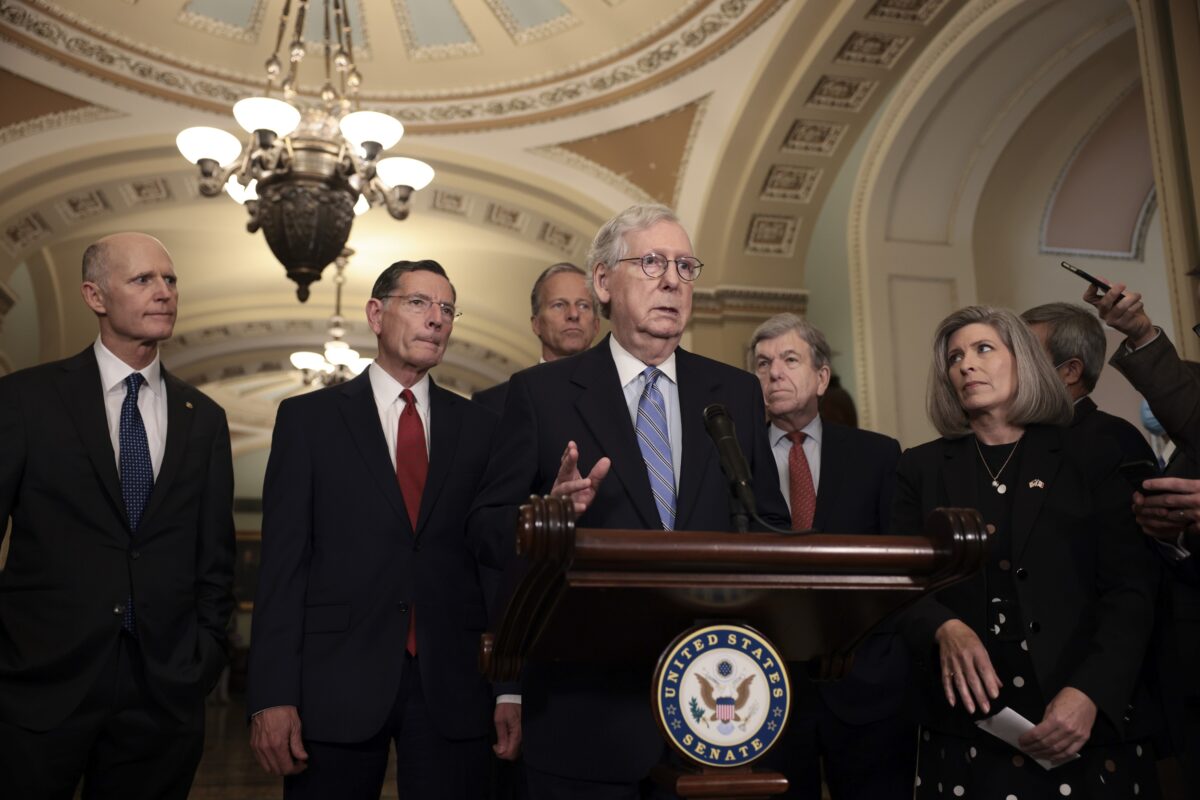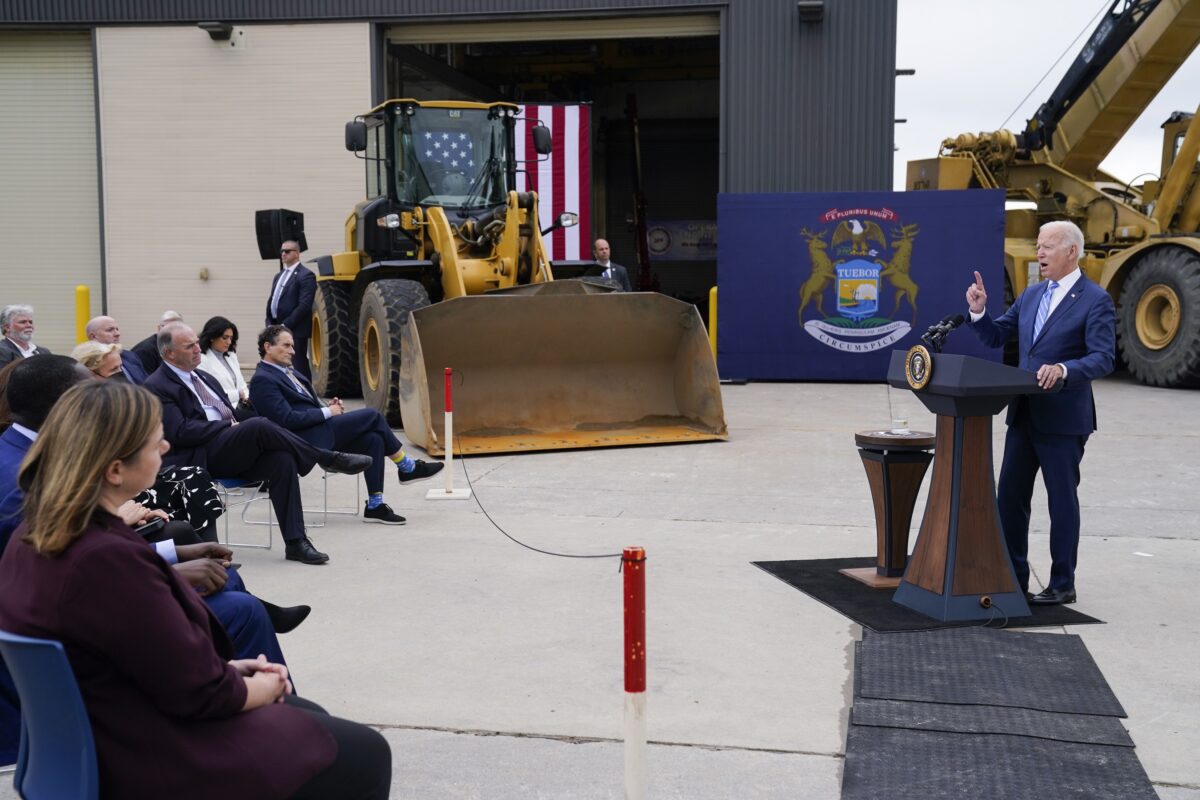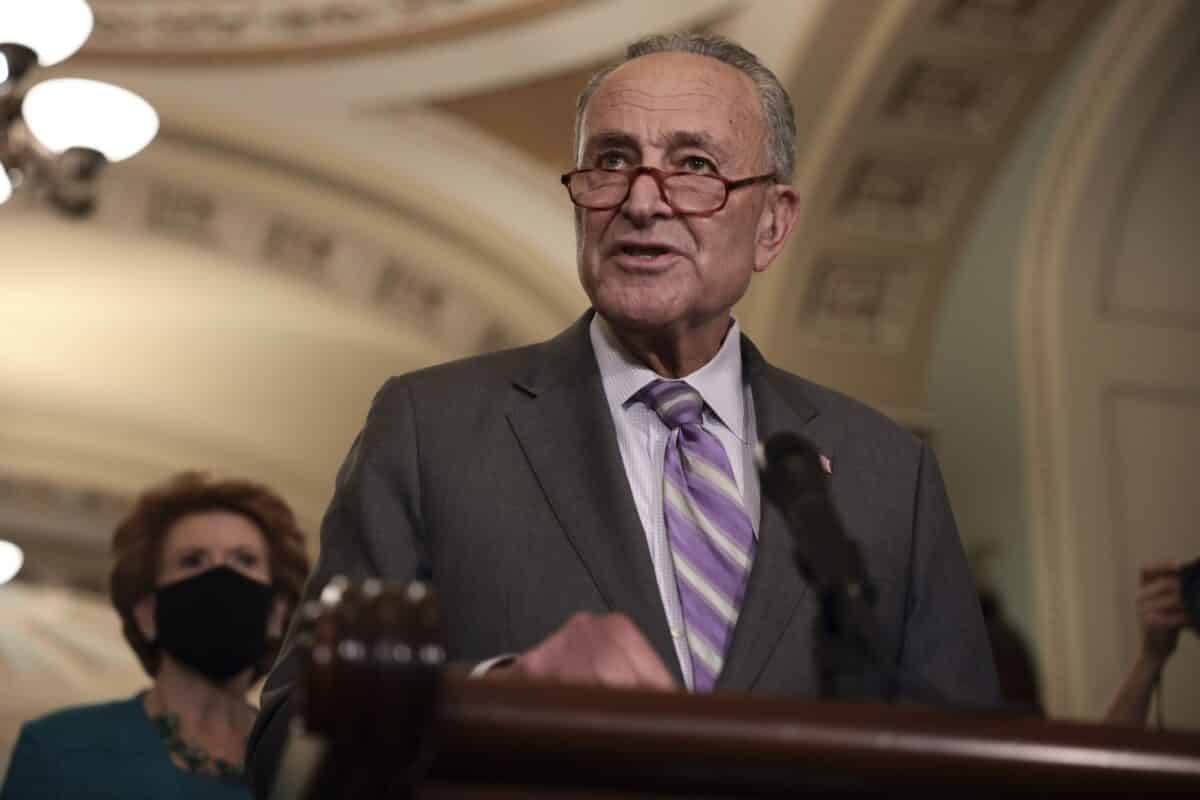A key Democrat in the U.S. Senate on Tuesday said the United States will not default ahead of the chamber’s vote on a bill that would suspend the debt ceiling for over a year.
“It is not going to happen,” Sen. Joe Manchin (D-W.Va.) told reporters in Washington.
The United States is poised to be unable to meet its financial obligations if lawmakers don’t raise or suspend the debt limit by Oct. 18.
But the suspension bill, passed by the House of Representatives along party lines last week, has virtually no Republican support in the Senate.
Democrats control the 50-50 chamber but need 60 votes on a cloture motion before a final vote. Senate Minority Leader Mitch McConnell (R-Ky.) has said it is the Democrats’ responsibility to deal with the ceiling because the party has been operating on a “partisan basis.”
One possibility is folding a provision into the budget reconciliation package Democrats are aiming to ram through Congress with no Republican support.
But Senate Majority Leader Chuck Schumer (D-N.Y.) said Tuesday that’s not an option.
“Reconciliation is a drawn out, convoluted, and risky process with default and downgrade hovering over us,” he told reporters at the U.S. Capitol.
Another way would be for Senate Republicans to not use the filibuster, which inserts the 60-vote requirement. If the party went that route, Democrats could pass the House bill with its 50 votes and the tiebreaking vote that can be cast by Vice President Kamala Harris.
McConnell indicated that wouldn’t happen in a separate press conference on Capitol Hill.
“That would require getting consent from every single Republican to lower the threshold to 51. I can’t imagine that would happen,” he said.
Some Democrats are considering a way to force the issue. They could remove the filibuster through a majority vote by invoking the nuclear option. Democrats used the option in 2013 to lower the 60-vote threshold for all judicial nominations except for Supreme Court ones to a simple majority. Republicans invoked it four years later for Supreme Court nominations.


Manchin and Schumer declined to answer directly when asked about the option but Sen. Dick Durbin (D-Ill.), the second-ranking Democrat in the Senate, told a reporter that the party should discuss it.
“We must fix the broken filibuster rules,” Sen. Jeff Merkley (D-Ore.) added on Twitter.
While nowhere near 10 Republicans have pledged to support raising the debt ceiling, Sen. Lisa Murkowski (R-Alaska), who regularly crosses the aisle, told reporters she was thinking about it.
Sen. Ted Cruz (R-Texas), though, said Schumer won’t get his wish.
“What Schumer is desperately trying to get is political cover of 10 Republicans voting for the trillions of dollars of debt that the Democrats have irresponsibly racked up and the trillions more that they want to rack up,” he told reporters. “He’s not going to succeed in that.”
The tension over the debt ceiling comes as Democrats try to negotiate an agreement on two other bills, the budget package and a $1.2 trillion infrastructure bill that the Senate passed in a bipartisan vote in August.
Moderates hoped to pass the infrastructure piece last month but House Speaker Nancy Pelosi (D-Calif.) reneged on a promise to bring it to the floor under pressure from so-called progressives to first pass the budget package, which was once pegged at $3.5 trillion.
Manchin is a key stumbling block because he says the package is too high and no Republicans support it.
President Joe Biden met on Monday with 12 members of the Congressional Progressive Caucus, which is blocking the infrastructure bill. On Tuesday, he met with 11 moderates. According to a White House readout, the latter group “renewed their commitment to getting each bill passed so that we can make investing in families the heart of our economic growth strategy.”
Progressives have shown no signs of budging so far.
“Progressives have been saying it for months—these bills go TOGETHER. That was the deal and it’s how we will deliver transformational change to working people, families, and our communities,” Rep. Pramila Jayapal (D-Wash.), chair of the progressive caucus, wrote on Twitter on Tuesday.
White House officials say they’re in communication with both Manchin and Sen. Kyrsten Sinema (D-Ariz.), who opposes the $3.5 trillion budget package and Biden declined to support after she was illegally recorded in a bathroom in her home state over the weekend.
Biden, meanwhile, told reporters in Michigan that he believed Manchin is moving toward supporting a package larger than $2.2 trillion. He also said that the final budget package will come in under $3.5 trillion.




